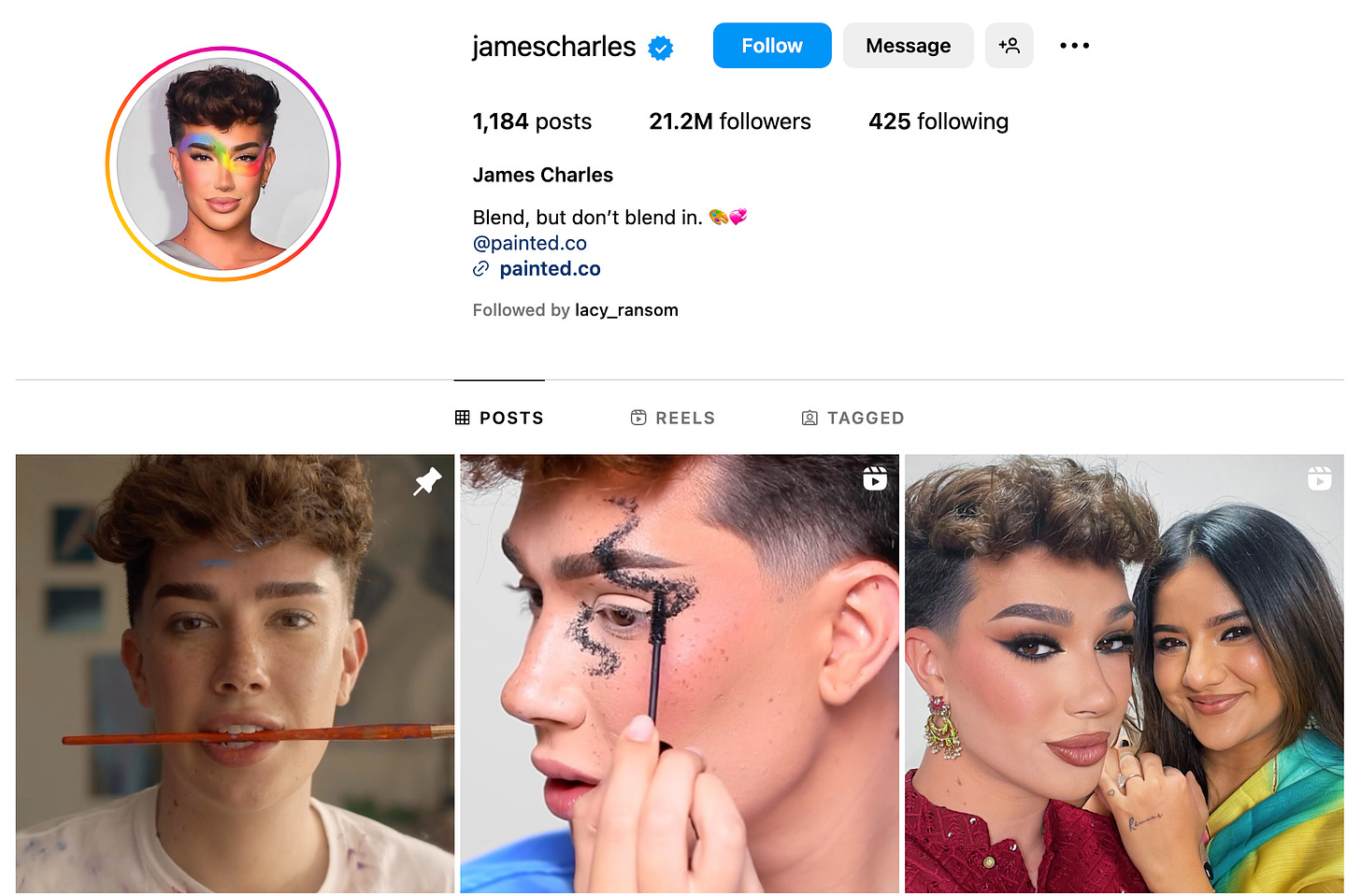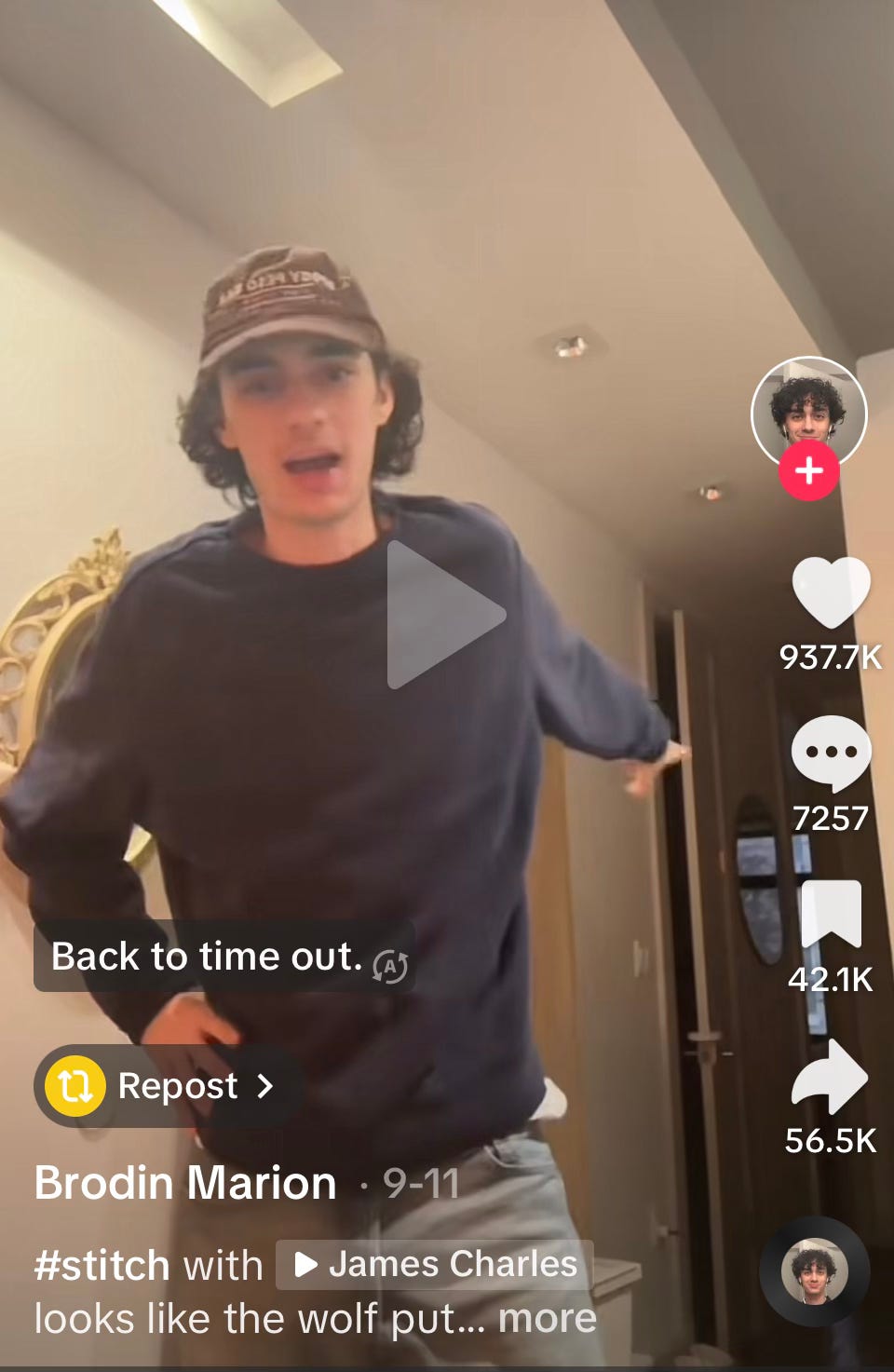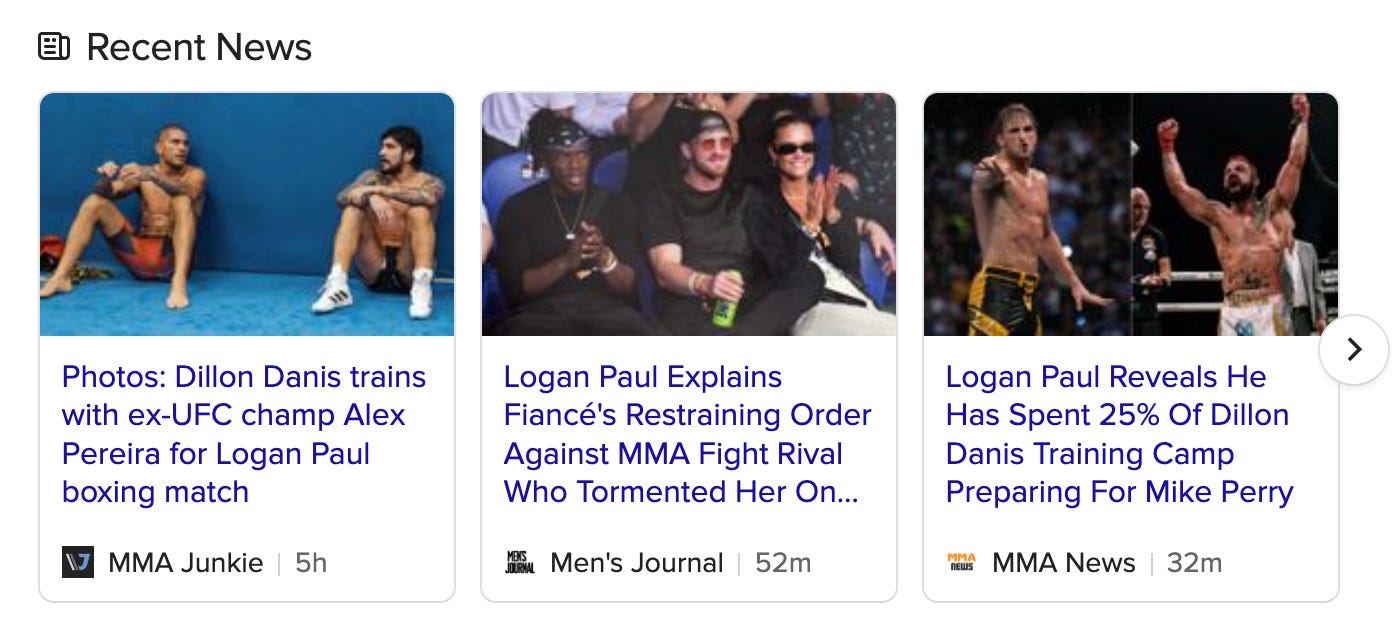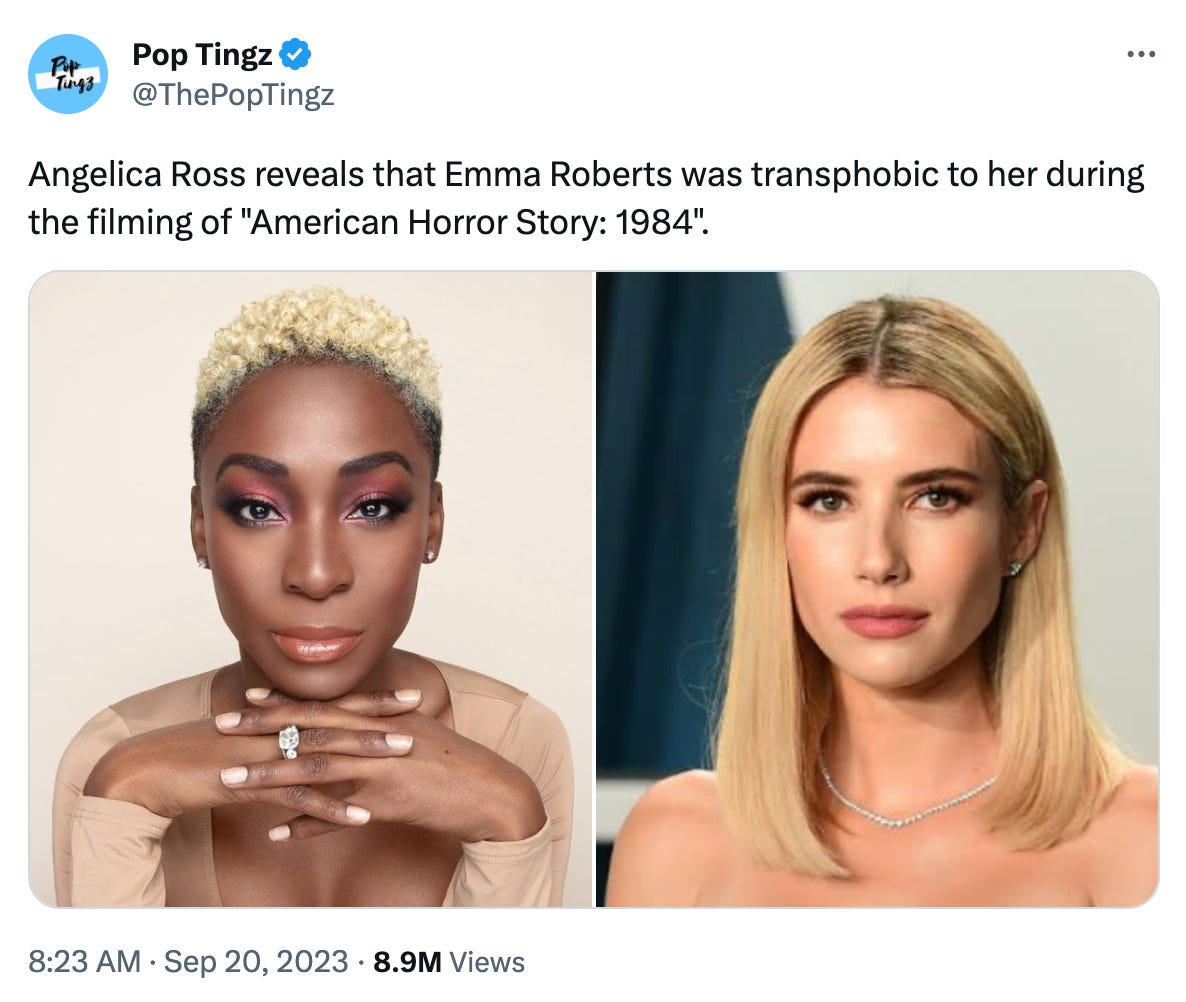Canceled in 2017, aiming for a comeback in 2023
2010s stars like Melanie Martinez, James Charles, and Logan Paul are attempting to slide back onto the scene
Welcome to Gen Z Translator, where I break down trending topics every Friday at 10 a.m. Eastern. If you’re new, you can subscribe here and follow me on X/Twitter or Instagram. Happy reading
I recently happened upon Melanie Martinez’s third album in one of my Spotify shuffles. It struck me as strange – a singer I had once enjoyed disappeared from my radar entirely. Part of that was by choice.
I had really liked Martinez’s debut album, “Cry Baby,” back in 2015. (Albeit, I didn’t quite notice at the time that her entire aesthetic revolved around infantilization). Two years later, peak #MeToo1 era, a singer accused Martinez of sexually assaulting her. I joined many fans in skipping out on her sophomore album because of that.
She’s not the only “canceled” star that seems to be subtly returning to the playing field.
NBC News actually wrote a story about this in August, saying that “YouTube’s ‘canceled’ stars are making comebacks with TikTok, podcasts and livestreams.”
Take James Charles, for instance.
The 2010s YouTube star, known for his makeup and fashion videos, is still doing his thing. That doesn’t mean his audience has forgotten the accusations against him regarding his communications with underage minors, though
I saw the video above earlier this month, which made made me wonder what happened to other figures that were internet famous until controversy struck. Logan Paul, for instance, still finds himself popping up in the headlines, even after he filmed and published footage of someone who had died by suicide.
Attempted cancellations nowadays seem to revolve more around starlets like Hailey Bieber, Emma Roberts, Ariana Grande, and Lizzo. All it really takes is one viral tabloid post to spark the conversation.
Holding public figures accountable has branched from blatant sexism and sexual abuse to racism, ableism, homophobia, and even not being a “girl’s girl,” as Grande was called.
I think we’re in a second wave of cancel culture as a whole, one that revolves less around shock value and more on casual cruelty. #MeToo turned the default from “He said,” “She said” to “Believe survivors.” That’s translated to “Believe accusers.” We’ve progressed past asking people not to abuse their power and into holding celebrities to a higher standard overall.
To what extent these stars do or don’t remain out of the spotlight depends on how seriously society continues to take this relatively new phenomena. (After all, it’s not like they had the internet in the days of Thomas Jefferson.)
While it’s disconcerting that 2017 was six years ago, the fact that some of these stars are being told to go “back to timeout” when they encroach upon the fame they once had goes to show that there may be some staying power to so-called cancellation.
Scandals and bad behavior aren’t anything new, but with the longevity and instantaneousness the internet offers, it seems from these case studies that “being canceled” could really mean that you’ve been canceled.
Or at least, remembered as canceled, because James Charles still has brand deals, Logan Paul is MMA fighting, and I listened to Melanie Martinez’s album, so, do with that what you will.
My weekly roundup:
🎶 What I’m Listening To: The Diamondback’s fall 2023 boosroom bops 👻
🔎 What I’m Reading: My friend Alexander Dacy’s newsletter on the 10 year anniversary of Lorde’s debut album. Check it out and give him a follow while you’re there 😁
📱 What I’m Scrolling: Hype around the upcoming Percy Jackson TV show (more to come on this) and Rick Riordan’s newest book ⚡
Read the full Gen Z Dictionary here.
#MeToo: A movement encouraging survivors to come forward with the truth about their sexual abusers following revelations about Harvey Weinstein.







